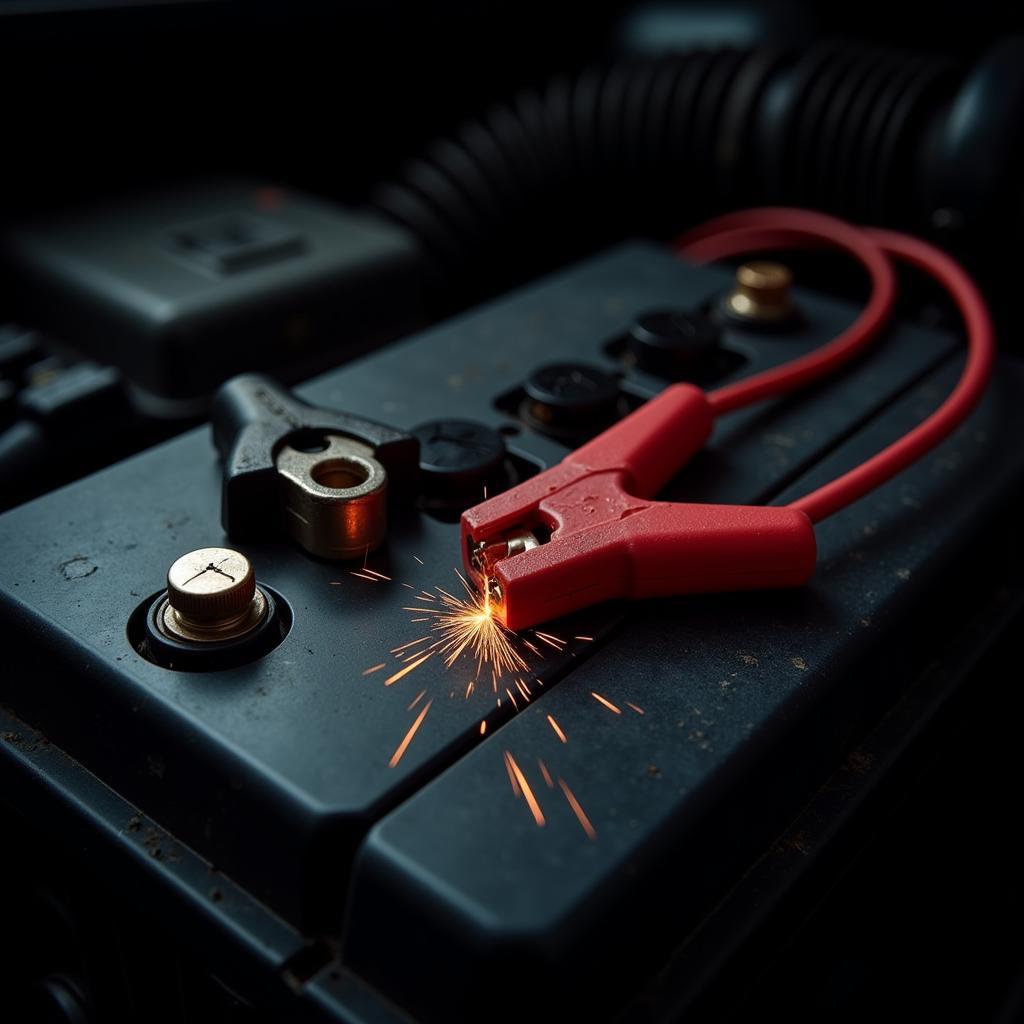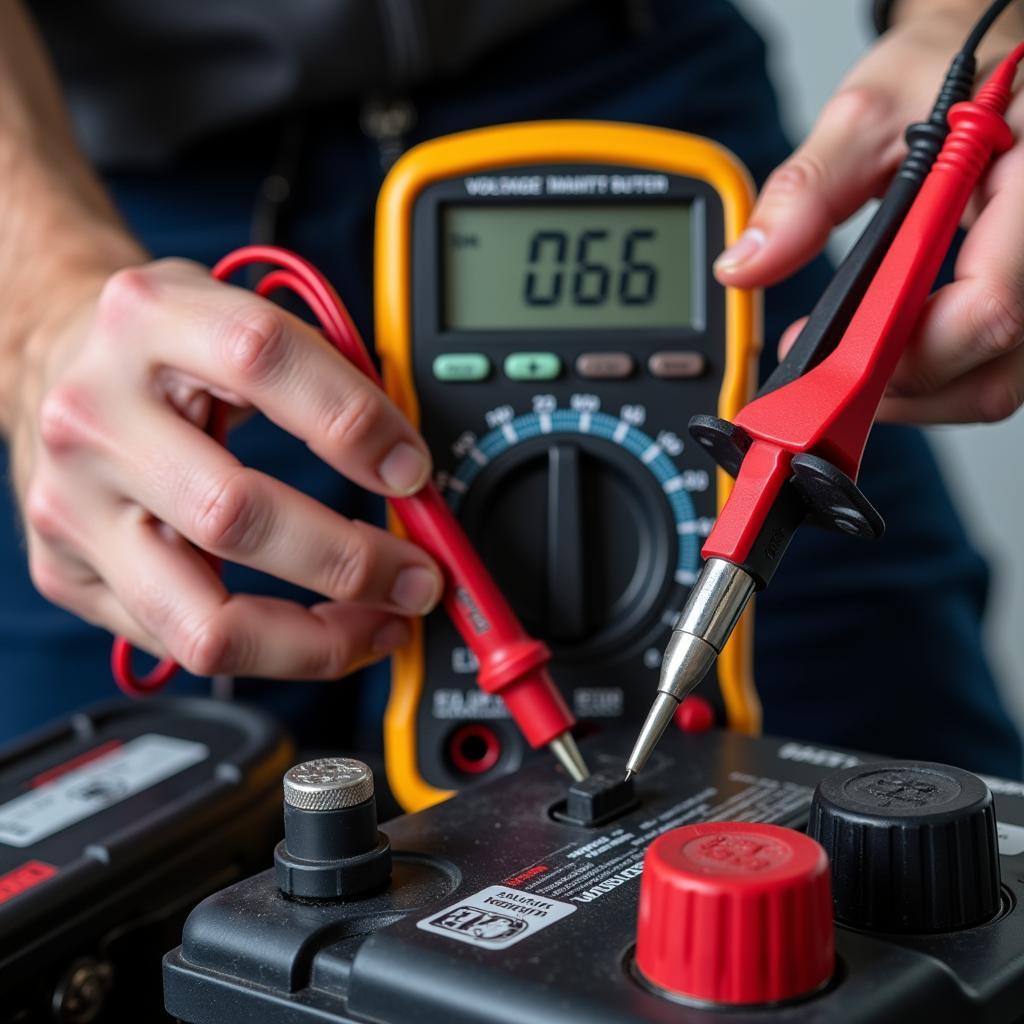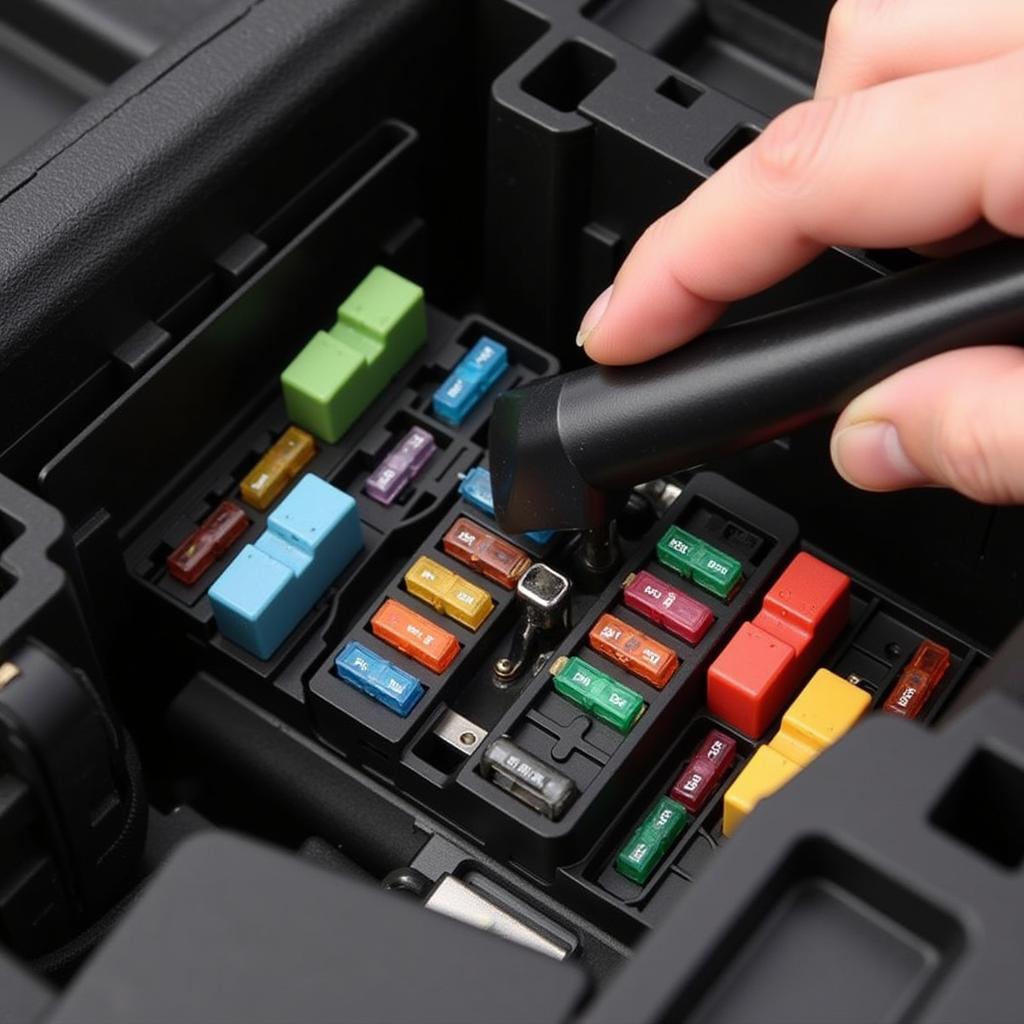That dreaded clicking noise when you turn your key – every driver’s nightmare. A car that won’t start accompanied by a clicking noise can be incredibly frustrating, especially when you’re in a hurry. But before you panic, understand that this clicking sound is often a clue pointing towards a specific problem, usually related to your car’s electrical system. This article will guide you through the common causes of a car not starting with a clicking noise, and offer potential solutions, from simple DIY fixes to when it’s time to call in a professional.
 Car Battery Making Clicking Noise
Car Battery Making Clicking Noise
One of the most frequent culprits is a weak or dead battery. If your battery isn’t providing enough power to engage the starter motor, you’ll hear that tell-tale clicking. This could be due to various factors, like leaving your lights on overnight, extreme temperatures, or simply an old battery reaching the end of its lifespan. You can try jump-starting your car. If it starts, it confirms the battery issue. If jump-starting doesn’t work, or the problem recurs quickly, it’s a sign you need a new battery. Check out our article on causes of battery drain in car for more information on why your battery might be failing.
Why is My Car Making a Clicking Noise and Not Starting?
Besides a dead battery, several other issues can cause your car to make a clicking noise and refuse to start. These range from simple fixes, like loose battery terminals, to more complex problems requiring professional attention, like a faulty starter motor or ignition switch. Knowing the different causes can help you narrow down the problem and decide on the best course of action.
Common Causes of Clicking Noise When Starting Car
- Dead or Weak Battery: As mentioned earlier, this is the most common cause.
- Corroded Battery Terminals: Corrosion can disrupt the flow of electricity from the battery.
- Loose or Damaged Battery Cables: A loose or broken connection can prevent power from reaching the starter.
- Faulty Starter Motor: The starter motor is responsible for cranking the engine. If it’s failing, you might hear a rapid clicking noise.
- Malfunctioning Ignition Switch: The ignition switch supplies power to the starter. A faulty switch can interrupt this process.
- Bad Starter Relay: This small electrical component acts as a switch for the starter motor.
“A clicking noise is often the first sign of a failing starter motor,” says John Smith, ASE Certified Master Technician. “While a battery issue can sometimes mimic this, it’s essential to check the starter if the problem persists after replacing or charging the battery.”
How to Diagnose and Fix the Clicking Noise
Before you start troubleshooting, make sure you have the necessary safety equipment, like gloves and eye protection. Also, consult your car’s owner’s manual for specific instructions related to your vehicle model.
- Check the Battery: Begin by inspecting the battery terminals for corrosion. Clean them with a wire brush and baking soda solution if necessary. Tighten any loose connections.
- Try Jump Starting: If the battery seems fine, try jump-starting the car. If it starts, your battery is likely the issue.
- Test the Starter: If jump-starting doesn’t work, you can test the starter using a multimeter. This requires some mechanical knowledge, so if you’re not comfortable, consult a mechanic.
- Inspect the Ignition Switch: Check the ignition switch for any signs of damage or looseness. Again, if you’re unsure, seek professional help.
 Checking Car Battery Voltage with Multimeter
Checking Car Battery Voltage with Multimeter
If your car won’t start and it’s not the battery, explore other possibilities like the starter or alternator. Our article on car not starting but battery good offers a comprehensive guide on these issues.
Conclusion
A car that won’t start with a clicking noise can be a daunting experience. However, armed with the knowledge presented in this article, you can better understand the likely causes and potential solutions. Remember, regular maintenance can prevent many of these problems. Keep your battery terminals clean, have your battery tested periodically, and address any electrical issues promptly. A little preventative care can save you a lot of headaches down the road. And if you’re ever unsure about diagnosing or fixing the problem yourself, don’t hesitate to contact a qualified mechanic. A charged battery wont start car in some cases, so always investigate further. If your battery isn’t dead but your car won’t start, this might indicate other problems.
FAQ
- What does a rapid clicking noise when starting a car indicate? A rapid clicking sound often points to a weak battery or a problem with the starter motor or solenoid.
- Can a bad alternator cause a clicking noise? While a bad alternator won’t directly cause the clicking noise when starting, it can lead to a drained battery, which then causes the clicking.
- How can I prevent my car battery from dying? Regularly clean the terminals, avoid leaving lights or accessories on when the engine is off, and have your battery tested periodically.
- How long does a car battery usually last? Car batteries typically last between 3 and 5 years, depending on climate and usage.
- What should I do if I hear a clicking noise and my car won’t start? Check the battery terminals for corrosion and tightness. Try jump-starting the car. If these don’t work, consult a mechanic.
- Is it safe to drive my car after jump-starting it? Yes, but it’s important to drive for at least 30 minutes to allow the alternator to recharge the battery.
- Can a clicking noise when starting a car be a sign of a serious problem? While often a simple battery issue, it could also indicate a failing starter, alternator, or other electrical problem. It’s always best to investigate promptly.

